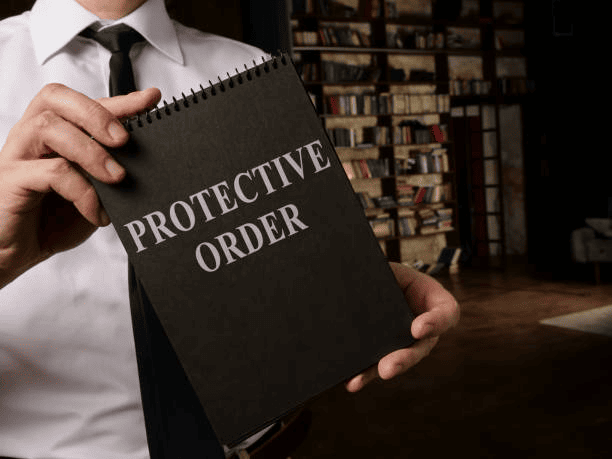To protect your loved ones from further violence, harassment, or intimidation, you must obtain an order of protection. Family disputes can be complex, and resolving them can be daunting. However, in Australia, the Family Law Act 1975 provides a legal framework for resolving family disputes fairly and justly.
One of the crucial aspects of the Act is the provision for an order of protection. In this article, we will discuss the order of protection in detail and how one can utilise it to safeguard their well-being.
What is an Order of Protection?
An order of protection is a legal document that the court issues. It prohibits a person from engaging in specific conduct toward another person. The prohibited conduct can include physical violence, harassment, intimidation, or any behaviour that causes fear or distress. The order can also specify the distance between the victim and the property the aggressor must maintain. The purpose of the order is to protect the victim from harm and to prevent the aggressor from subjecting the victim to further abuse.
Different states have different names for protection orders or restraining orders. These are called:
- Family Violence Order in the Australian Capital Territory;
- Family Violence Order in Tasmania;
- Apprehended Domestic Violence Order (ADVO) in New South Wales (Click here to read our article about the apprehended domestic violence order);
- Domestic Violence Orders in the Northern Territory;
- Domestic Violence Orders in Queensland;
- Intervention Orders in South Australia;
- Intervention Orders in Victoria; and
- Family Violence Restraining Orders in Western Australia.
Although the terms of family violence orders vary by state and territory, the methods are the same. Family violence orders made in one state or territory can be registered for execution in another if necessary. Individuals who are victims of domestic or familial abuse can petition for a family violence order.
A Family Court order of protection can last up to two years. Under aggravating circumstances, a family court order may last up to 5 years. A final order of protection from Criminal Court can last up to 8 years depending on the matter or what crime is committed. An order of protection from Supreme Court as part of a divorce is permanent.

How to Obtain an Order of Protection in NSW?
In NSW, an apprehended violence order (AVO) is a court order issued against someone who makes you worry for your safety to prevent you from additional assault, intimidation, or harassment.
There are two ways to apply for an AVO:
- If the police are concerned about your safety following an incident, they can apply for a provisional (temporary) AVO on your behalf.
- The police will update you on the AVO and notify you when it is time to appear in court. The AVO application will be served (officially given) to the defendant by the police.
- The AVO application will notify the defendant of the day and time they must appear in court.
- You can also apply for an AVO before the Local Court on your own. This is called a private application. Legal Aid NSW may be able to help you.
It’s crucial to provide as much evidence as possible to support the application. This includes medical reports, police reports, or witness statements. The court will take into account the evidence presented and assess whether the order is necessary to protect the victim’s safety and well-being.
It may be denied if the court judges the application as frivolous, vexatious or impossible to succeed. If your application is frivolous or intended to cause problems, the court may urge you to try mediation. There will be a future court date to determine if the order of protection will remain in place. Both parties must be at this future court date.
Grounds for Obtaining an Order of Protection
The grounds for obtaining protection orders vary across state and territory family violence legislation. However, there are two general approaches to establishing a threshold for obtaining a protection order. Although the criteria provided are met, the court still has the discretion of granting the order.
- Acts-based test. The commission of family violence in the past is the primary subject of this test. Other Australian Territories take this approach and focus on past and future conduct, anticipating that the person using violence ‘may again commit’ family violence.
- Fear-based test. This test focuses on the effect of violence on the victim. In NSW, a person must not only feel actual fear but also have reasonable grounds to fear the commission of a personal violence offence.
The Consequences of Breaching the Order
Breaching an order of protection is a severe offence in Australia. If the aggressor violates the order, they can be arrested and face criminal charges. In NSW, Section 14 of the Crimes (Domestic and Personal Violence Act 2007) defines the offence of violating an AVO. The maximum punishment is a fine of 50 penalty units or two years in prison. The court must provide justification if a non-custodial sentence is given.
If you ignore the orders of an AVO, the police have the authority to arrest you and charge you with the criminal offence of contravening the AVO. They also have the authority to prosecute you with other criminal offences, such as assault or malicious damage.
In the event that you unintentionally violated your Apprehended Violence Order (AVO) in certain situations, such as if you enter a building without knowing the protected person is there, the police may decide to charge you with contravening (breaching) an AVO. However, unless you intentionally do anything an AVO forbids, you cannot be held guilty of violating one.

Talk to a Family Lawyer About Protection Orders
An order of protection is an essential tool in protecting victims of domestic violence, harassment, or intimidation. It provides a legal mechanism to ensure the safety and well-being of individuals who are vulnerable to abuse. If you or a loved one is a victim of this type of behaviour, seeking protection order can be a crucial step towards ending the abuse and moving towards a safer future.
Remember that legal aid is available and you are not alone. Speak with a support group or a solicitor who can help you navigate the procedure and secure the protection you require.
JB Solicitors is a team of experienced family lawyers who can help you in your application for a protection order and advise you on the proper steps to take in matters related to getting a protection order and family law concerns in general.
Contact us today.
